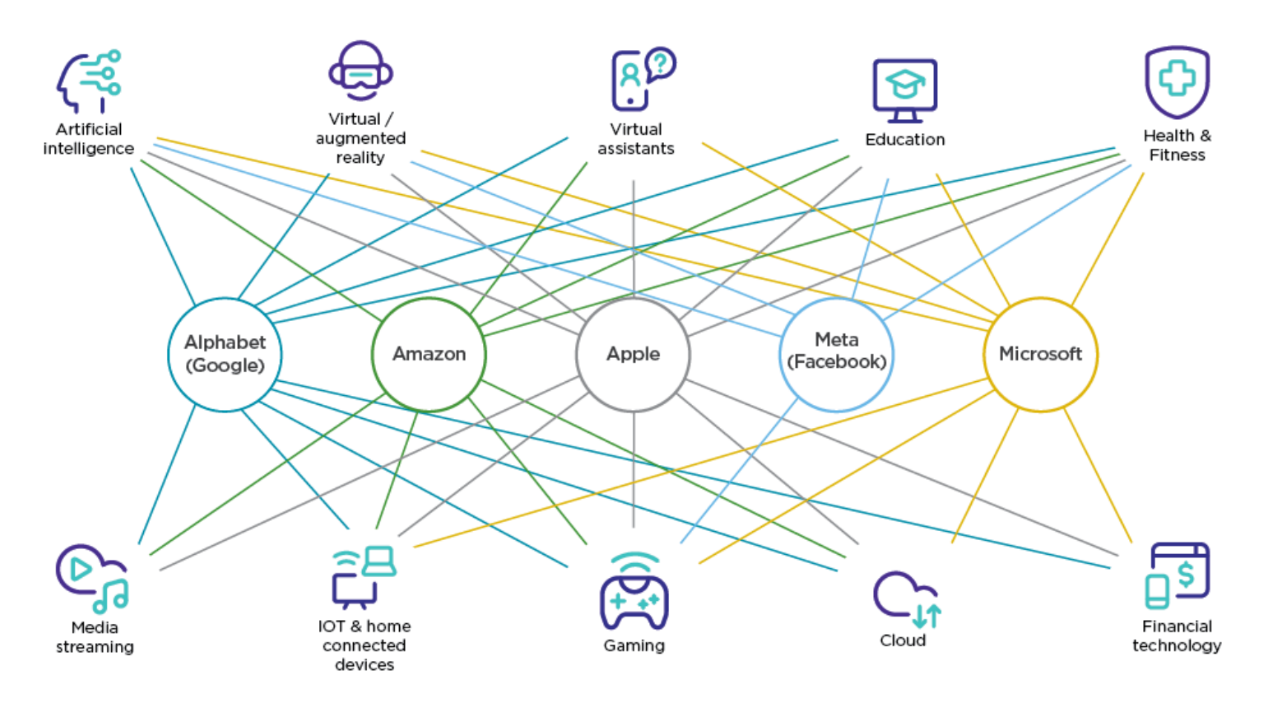The next instalment of Australia vs technology is upon us, this time, in the ACCC’s crosshairs is artificial intelligence, gaming, smart home devices and other peripheral stuff that relies on the internet.
The Australian Competition and Consumer Commission (ACCC) is now examining the expanding ecosystems of providers of digital platform services, including those of Alphabet (Google), Amazon, Apple, Meta (Facebook) and Microsoft. Specifically, it will “closely examine the extensive web of interconnected products and services of digital platform service providers and the extent to which this may have increased the risk of competition issues and consumer harms in Australia”.
Think of Meta-owned Oculus, Microsoft Bing’s ChatGPT focus, cloud storage you use from Apple and Google Home products you have peppered through your apartment.
The ACCC has this week published an Issues Paper asking all relevant parties (read companies that want to defend themselves, academics who have knowledge in the space and smaller firms who ‘just want a fair go’) some questions about the state of the internet. The Issues Paper is the next step in the ACCC’s Digital Platforms Inquiry. The consumer watchdog has had tech giants in its sights for years. It ramped up action in July 2019 when it published its whopping 623-page Digital Platforms Inquiry report and since then, there’s been quite a bit of action follow, including that time Facebook pulled news from Australia because legislation didn’t quite understand technology and politicians were determined to have tech giants pay “their fair share”.
This Issues Paper seeks views on the impact of the expanding ecosystems of providers of digital platform services on Australian consumers and businesses, including the increased risk of potential competition and consumer issues. The report that’ll be published in a few months will consider everything from smart home devices to consumer cloud storage services – basically anything that can be seen as examples of the expansion of digital platform service providers into products and services that relate to their other digital platform services.
Here’s a pretty picture.

The ACCC is concerned that Alphabet has expanded from general search and search advertising services into developing and offering mobile, automotive, and wearable operating systems. That Amazon has expanded from its origins as an online marketplace for books to the now expansive online electronic marketplace, not to mention its profitable cloud arm, investments in health, gaming, virtual assistant technology, smart devices, media streaming and more. It isn’t too happy that Apple has expanded from a supplier of personal computing devices and operating systems to a key distributor of mobile apps through the Apple App Store and online private messaging services – also streaming. As for Meta? Marketplace, Messenger, VR, that metaverse rubbish, not to mention its obsession with collecting all of your data. And lastly, with Microsoft, the ACCC reckons its internet browsers, LinkedIn ownership and Office suite now being online is also worth probing.
“These examples demonstrate the reach of these providers of digital platform services in Australia and the growing suite of digital platform products and services used by Australians daily,” the ACCC says.
As it’s an Issues Paper, the ACCC is asking questions about these internet-connected peripheral products and services, such as, ‘Do Alphabet, Amazon, Apple, Meta and Microsoft hold any unique advantages when entering new sectors or developing new products/services?’, ‘What benefits have consumers, businesses and the Australian economy gained from the expansion activities of these providers of digital platform services?’ and ‘What types of potential consumer harms have arisen from these providers of digital platform services expanding their ecosystems?’.
The ACCC is accepting submissions until April 25 and will report back on its internet adjacent report in September.
